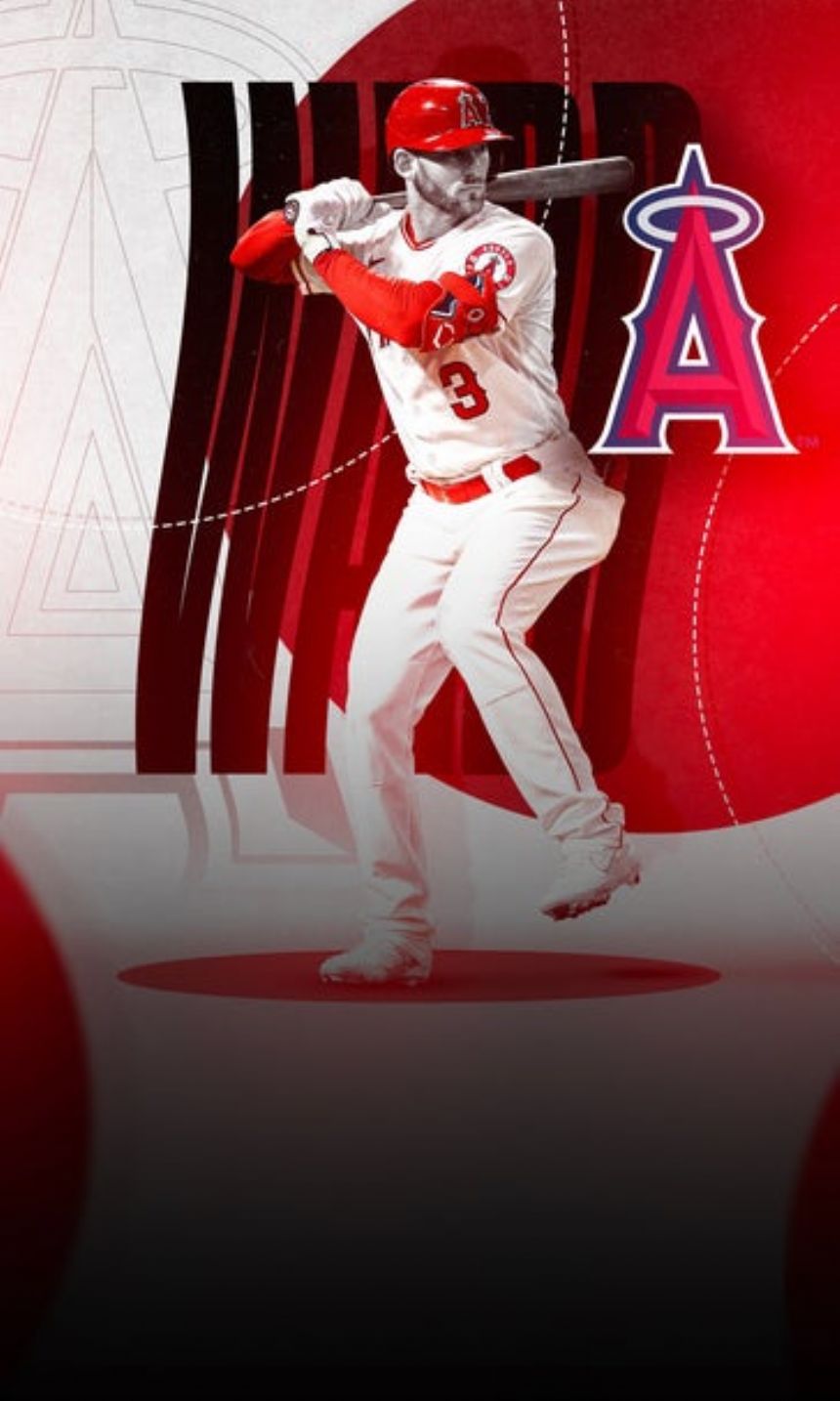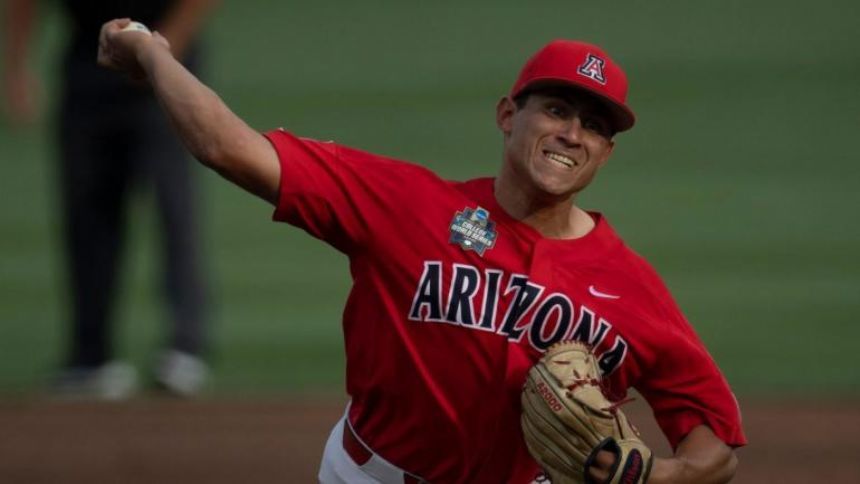By Pedro MouraAP Sports MLB WriterWhen Taylor Ward's former roommate showed him the new methods he had learned to track his swing, Ward saw the potential in them at once.
It was the fall of 2017, and Trent Woodward had just decided to retire from professional baseball because of a significant hip surgery. Fortunately, he had spent four seasons as an Astros farmhand, and in his final season, the Astros introduced him to the new technologies that they found enabled precise practice in pursuit of swing efficiency.'
They did not prescribe one style of swing but recommended a range, plus drills that helped hitters stay within that range. Woodward showed them to Ward, and Ward saw immediate results.
"Initially, I thought, 'Oh, I'm gonna do this, and my life's gonna be great, and it's all over,'" Ward said. "'I'm just gonna go rake every day.'"
He did rake every day - in the minor leagues. After a dominant Double-A stint, he advanced to Triple-A, where he continued to excel. By August 2018, Ward was in the major leagues.'
There, his success stalled for a few seasons.
Now, the 28-year-old Angels outfielder is 2022's biggest breakout star. His 1.199 OPS leads all major-leaguers who have batted at least 90 times this season. Only two other players, Manny Machado and Mike Trout, are within 200 points of that mark.'
While the rest of the sport has struggled to generate offense, Ward has done it with apparent ease, and the Angels' best-in-class offense has followed his lead. The two most recent full-season AL MVPs are both Angels, Trout and Shohei Ohtani, but it is a long-forgotten prospect who has been the team's best player so far this season.
It's not as wild as it seems. Across more than 800 Triple-A plate appearances in 2018, '19 and '21, Ward hit .330 with an OPS over 1.000. His swing punished prospects, but it remained too inconsistent for the highest level.'
When he returned to the majors in 2020 and '21, Ward was better but unexceptional. During that time, Angels manager Joe Maddon suggested that Ward improved when he stopped thinking about his contact angle.
"Somebody wanted to teach him to lift the ball," Maddon told reporters then. "And he got this thing that's all over the internet that's really horrible. ... He had to get away from that."
Actually, he had to recommit to it. Ward and Woodward have convened at least once a month since the 2017 offseason, slowly revamping the way Ward once swung to align with the tenets the Astros introduced. It began with holding the bat at a 90-degree angle to his spine and trying to match the angle of the incoming pitch with a slight uppercut in his swing. Blast Motion and K-Vest equipment made capturing and practicing that possible.'
Ward first fell into the common trap of swinging with too much of an uppercut, and that took time to correct - with Woodward's help. They now aim for a launch angle between 5 and 12 degrees, maximizing potential contact time. Homers are not the goal but a welcome byproduct of an efficient, liner-driven approach.
"[Woodward] and I know the deep ins and outs of what we're doing," Ward said. "Joe, at the time, didn't necessarily know that, to that extent."
By 2021, Ward's swing was close to where it is now. But after an injury held him out the first month, he flailed for most of the next few. Over the All-Star break, he and Woodward resolved to make one more change. Feeling that he was wasting time with unnecessary movement in his stance, he moved his hands closer to his body, simplifying his swing. They had discussed such a switch in years past but never executed it.
"That literally solidified what I've kept from that moment," Ward said last week, "to this moment."
In four post-break games, Ward smashed three extra-base hits. Then Justin Upton returned from an injury, and the Angels demoted Ward. He proceeded to obliterate Triple-A pitching, eventually earning his way back to the majors for the last two games of the season. In five plate appearances, he reached base four times. He went home for the winter confident in his swing, with both Ward and Woodward believing a breakout was coming.
Woodward has long been passionate about the swing. He read Ted Williams' "The Science of Hitting" as a teenager. During high school games, he often argued with a teammate about the swing. He cited Williams' advice to swing with a slight uppercut. His teammate cited their coaches' advice to swing slightly down. That teammate, Kyle Garlick, made the major leagues with the Dodgers, where he learned that Williams' approach had far more support.
"It's funny to come full-circle into these advanced analytic organizations to the same spot," said Woodward, who now works in medical device sales.
It's funny, too, that the Angels' top performer this season has been fueled by the teachings of the Astros. The Angels are also an advanced analytics organization, but they've cycled through a number of iterations during Ward's tenure. Three weeks after Ward signed with the Angels, general manager Jerry Dipoto resigned. Billy Eppler eventually replaced interim general manager Bill Stoneman, and Perry Minasian replaced Eppler after the 2020 season.
The people and teachings have changed. Ward's position has changed. When the Angels drafted him 26th overall seven years ago out of Fresno State, he was a defense-first catcher whom some scouts preferred as a pitcher. (Baseball America wrote that he lacked "a natural feel for hitting.") By his major-league debut, Ward was a third baseman. Now he's an every-day right fielder.
The constant has been his exceptional plate discipline. He has always displayed the discerning eye necessary to draw walks, and now he has paired that with power and an approach so calm that he hardly moves before swinging.
"It crushes your ego when he takes pitches the way he takes them," said Angels right-hander Michael Lorenzen, a former two-way player. "It's like he saw it instantly. He knew it was coming. As a pitcher, you're like, 'Whoa, wait a second. That's not normal.'"
Lorenzen, new to the team this season, noticed this abnormality when Ward homered after a few impressive takes during the Angels' first Cactus League game. When Lorenzen saw Ward in the weight room the next morning, he asked him, in awe, what he had changed in his approach.
Ward downplayed it - little had changed since last year - but Lorenzen kept watching. When the Angels broke camp in Arizona and headed for Southern California, they cleared at-bats for Ward by designating Upton for assignment, eating the veteran outfielder's $28 million salary for 2022.'
The next day, during the exhibition Freeway Series at Angel Stadium, Lorenzen was still wondering exactly what Ward was doing differently. He found holdover David Fletcher during the first inning and asked him. While they spoke, Ward battled Dodgers ace Walker Buehler to a 3-2 count, then clobbered a home run.
Lorenzen went back to Ward the next afternoon. They've since shared several conversations about the science underpinning his swing.'
"This isn't a phase. It's not like he's super-hot right now," Lorenzen said. "He is hot, but it's more than that."
Statistics support his claim. More than his power, Ward's plate discipline is fueling this success. He is not hitting the ball particularly hard, but his chase rate ranks in the sport's 99th percentile, per Statcast. His patience is forcing opponents to throw him pitches he can drive.
"If you throw him 97 on the corner, he'll look at it and go, 'I'm probably not gonna hit that, and if I do, I'm probably not gonna do much damage with it,'" said teammate Jared Walsh. "'So I'll take my chances because the ump might call it a ball.'"
Over the past few years, Walsh and Ward have spent many hundreds of hours hitting together, including daily in the offseason in Arizona. They rode out the pandemic shutdown together, talking through their swings and taking batting practice from Ward's wife. Walsh broke out the next season and became an All-Star last summer.'
It took Ward a little longer, but Walsh has been expecting it.'
"I didn't see anything over the offseason that made me think, 'Whoa, this is a lot different,'" Walsh said. "It's a gradual progression. He's been working his ass off since 2017. Now you're starting to see the fruits of that labor."'
Ward is waking up happier in this torrid stretch. He is finding peace at the plate, following his co-opted mantra: Float like a butterfly, sting like a bee. And he is finding joy in scrutinizing swings - his own and others'. That study convinces him that he can sustain this success.
"Over the course of the last four years, it's been a continuous process - kind of a crawl, walk, run - implementing some of this stuff into his swing over time," Woodward said. "He's just adopted and bought into so much of the swing science that we were originally talking about that it's just become second nature to him."
Ward started buying in as soon as he heard the gist from Woodward. He continued to research it on his own. Now he's on top of the hitting world and taking only a little time to look back.
"I wish I knew this stuff four years ago or eight years ago," he said. "I have the sense that this was the way it should've been. But it's just the way it is."
Pedro Moura is the national baseball writer for AP Sports. He previously covered the Dodgers for three seasons for The Athletic and, before that, the Angels and Dodgers for five seasons for the Orange County Register and L.A. Times. More previously, he covered his alma mater, USC, for ESPNLosAngeles.com. The son of Brazilian immigrants, he grew up in the Southern California suburbs. His first book, "How to Beat a Broken Game," came out this spring. Follow him on Twitter @pedromoura.






 UFCBetPicks
UFCBetPicks